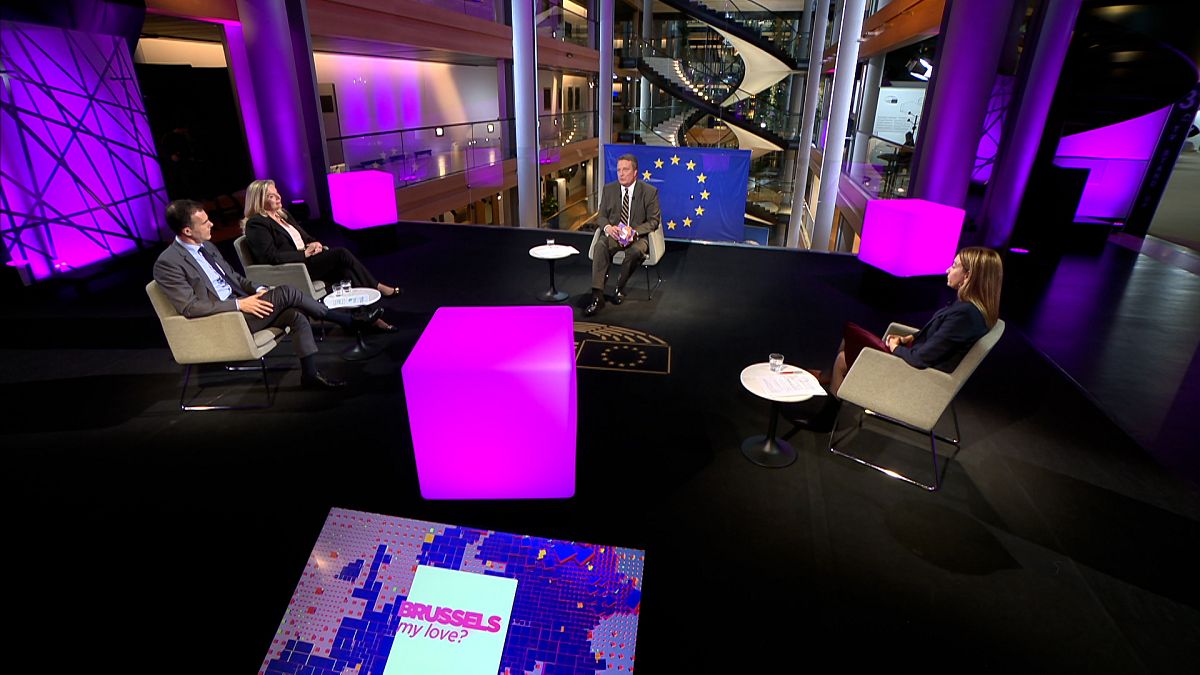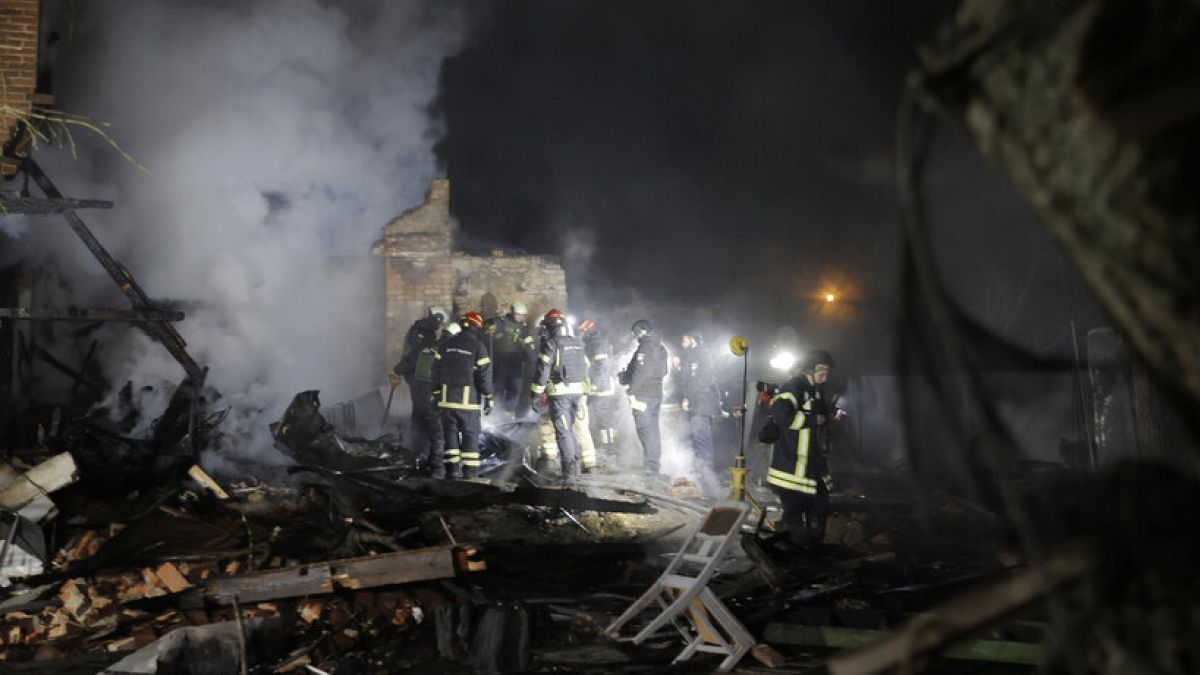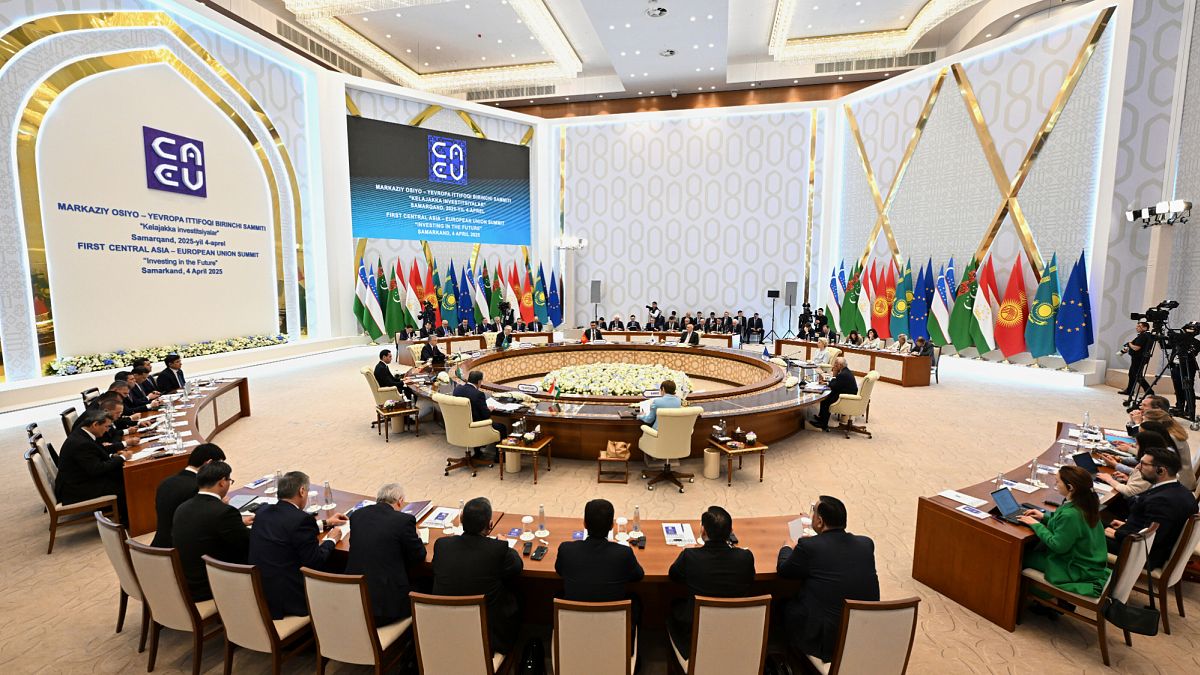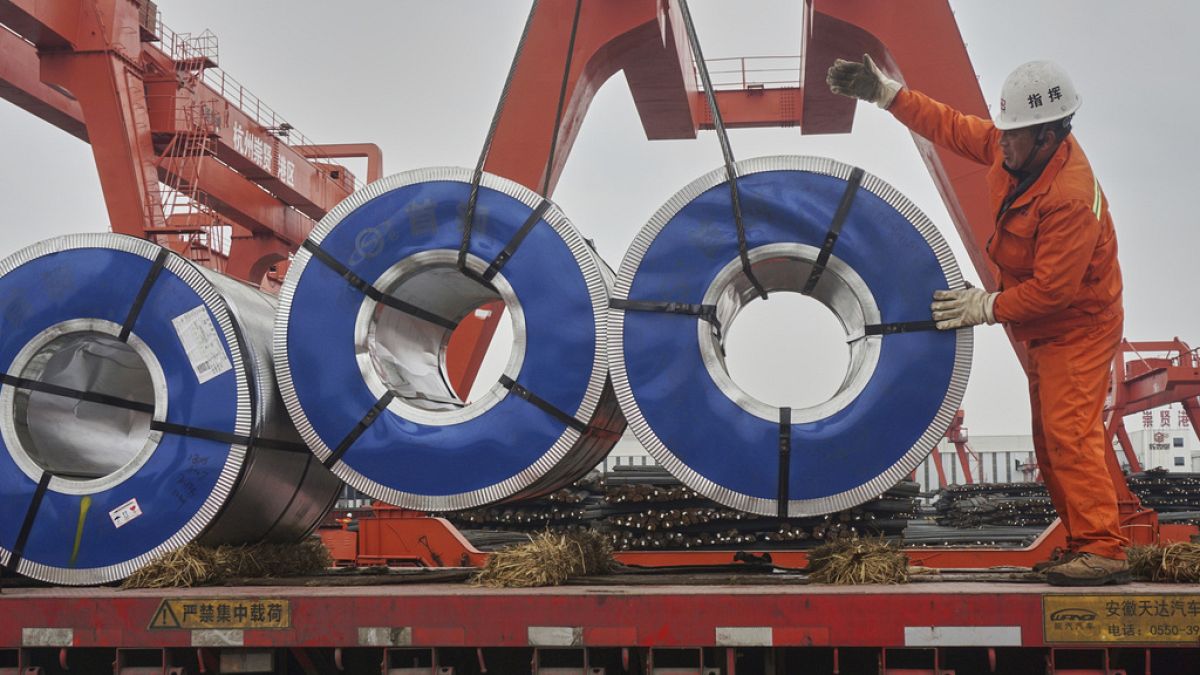Donald Trump's threat to use military force to annex Greenland has been met with a timid response by the European Commission.
The European Commission has fallen short of rebuking Donald Trump for threatening the territorial integrity of Denmark, a member of the European Union, after the American president-elect refused to rule out the possibility of employing military force to take control of Greenland, an autonomous territory that belongs to the Kingdom of Denmark.
Instead, the Commission tiptoed over the dispute by invoking general principles of action and avoiding any words of condemnation, in a similar vein to what it has done in reaction to Elon Musk's forceful attempts to interfere in free elections across the bloc.
"For us, it's clear the sovereignty of states has to be respected. This is our democratic value," a Commission spokesperson said on Wednesday.
"We're looking forward to working towards a strong transatlantic agenda and towards common goals and issues of key strategic interest."
Asked about Trump's threat to slap Denmark with tariffs at a "very high level" if Copenhagen refuses to give up Greenland, the Commission insisted it was "prepared to defend our interests in trade aspects, and other aspects, as necessary".
Greenland, unlike Denmark, is not a part of the 27-country bloc but enjoys a special status as an overseas territory which includes access to EU funds and freedom of movement for Greenlanders, who are considered EU citizens.
The Commission confirmed on Wednesday the sprawling island, which covers 2.16 million square kilometres, would benefit from the mutual defence clause laid out by the EU treaties. Under Article 42.7, all members have an "obligation of aid and assistance" if another member state falls "victim of armed aggression on its territory."
"We're speaking of something that is extremely theoretical on which we will not want to elaborate nor compare the situation with what happened in Ukraine," the spokesperson said, referring to the threats Russian President Vladimir Putin issued before launching the invasion.
"Many threats did not materialise. We don't see any need at this moment in time to go beyond what we have said."
The timid response comes a day after Trump held an hour-long press conference and laid out an expansionist vision for America, marking an unprecedented departure from long-standing foreign policy. Asked by a reporter if he could "assure the world" that he would not use military or economic coercion to take control of Greenland and the Panama Canal, the president-elect responded: "I won't commit to that."
Pressed on Greenland, he said: "I don't know if Denmark has any legal right to it, but if they do, they should give it up because we need it for national security."
In a separate social media post celebrating his son's visit to Greenland, Trump said: "This is a deal that must happen. MAGA. MAKE GREENLAND GREAT AGAIN!"
The prime minister of Greenland, Múte B. Egede, quickly rebutted the Republican's intimidation. "Greenland belongs to the people of Greenland," he said. "Our future and fight for independence is our business."
Danish Prime Minister Mette Frederiksen echoed Egede's words and stressed "Greenland is not for sale and will not be in the future either." Frederiksen said the island's future should be decided by its more than 56,000 inhabitants.
"We need to stay calm and stick to our principles," she told Danish TV.
The value of Greenland
Although outlandish, Trump's latest claims represent a serious escalation in his willingness to subjugate America's alliances to his ultra-nationalist "America First" agenda. Denmark and Canada, another country that Trump has threatened to annex through economic coercion, are both members of NATO and close US allies.
Trump's fixation on Greenland dates back to his first term in the White House, when Frederiksen had to step in to strike it down. However, back then, Trump's claims were not accompanied by the open threat of military force, as is the case now.
Global interest in Greenland has increased in recent years due to the effects of climate change. The progressive melting of ice is expected to allow more drilling for oil and mining of rare earth minerals that are critical to power the green and digital transitions, a top interest for both the EU and the US.
Last year, European Commission President Ursula von der Leyen visited Greenland alongside Egede and Frederiksen to inaugurate the first EU office in Nuuk, the capital.
"It is the beginning of a new era of our partnership with a very concrete presence of the European Union in Greenland and in the wider Arctic region," von der Leyen said.
Greenland also presents considerable trade advantages because of its location in the Arctic Sea. The Northwest Passage, which provides the shortest route between America's East Coast and Asia, could become navigable in the future due to ice decline.
The US Space Force operates a base in northern Greenland under a defence agreement signed by the US and the Kingdom of Denmark. The Pituffik Space Base supports missile warning, missile defence and space surveillance missions.
Jean-Noël Barrot, France's foreign affairs minister, said on Wednesday there was "obviously no question" the EU would defend its sovereign borders against external attacks. Barrot, however, was unconvinced Trump's words would lead to real action.
"If you're asking me whether I think the United States will invade Greenland, my answer is no," Barrot said. "But have we entered into a period of time when it is survival of the fittest? Then my answer is yes."

 2 months ago
27
2 months ago
27






 We deliver critical software at unparalleled value and speed to help your business thrive
We deliver critical software at unparalleled value and speed to help your business thrive






 English (US) ·
English (US) ·